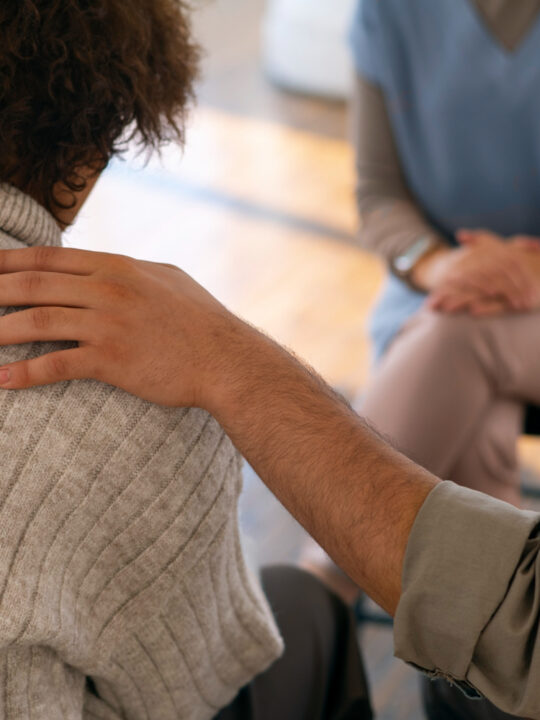
Alcohol is one of the most addictive substances on the planet and is the cause of nearly 88,000 deaths both directly and indirectly every year. That makes alcohol the third leading cause of preventable death in the United States. And yet, for all of its danger and addictive properties, it still seems to be the drug of choice for those in pain.
Oddly enough, drinking is almost encouraged as a means of numbing the pain in our society. We jokingly say things like “you must need a drink” when someone seems stressed, and we take our friends out for a drink when they’re feeling down.
When you’re feeling triggered, you’ll get hit with a wave of emotions. Your triggers may have also activated conditions like PTSD and depression, but you shouldn’t let alcohol be your first thought or your medication of choice. Here’s why.
Table of Contents
Alcohol Is Addictive
As one of the most addictive substances in the world, alcohol has a way of destroying lives through the path of addiction. Alcohol, when consumed regularly, creates a chemical dependency in the brain; that is, your brain doesn’t function right without it. This can lead to all kinds of problems, from physiological issues such as liver damage to destroyed relationships with friends, family, and co-workers.
If you’re using alcohol to numb the pain of some past trauma, you’re self-medicating in a way that’s not helping your condition. Alcohol can alter your mood, making you feel more depressed, sad, or hopeless. This form of coping often exacerbates pre-existing conditions, leading to more dangerous and often life-threatening behaviors or recklessness.
The bottom line? Self-medicating with alcohol is never the answer, and can lead you down a dark path to addiction. Once you set out on that road, it’s difficult (but not impossible) to come back from it. The best path to take it the one that leads away from alcohol addiction and toward a more effective treatment method.
Clouded Judgment
Alcohol has a way of clouding your judgment, which can lead to some pretty rash decision-making. Have you ever had too much to drink and gone home with a stranger, got behind the wheel, or made a phone call you shouldn’t have? While something like making a phone call to an ex might be harmless (or not), getting behind the wheel of a car can not only put your life in danger, but everyone else on the road as well.
Drinking alcohol increases a chemical in the brain called norepinephrine, which can reduce your ability to think clearly and causes more impulsive behavior. It also increases the level of dopamine in the brain, which makes it so pleasurable to consume. This can be a deadly concoction when consumed regularly in excess, leading to poor decisions that could have life-altering consequences.
When you start to feel triggered, don’t reach for the bottle. Confide in a trusted person, seek out professional help, or use more natural methods like exercise to relive your mental health condition symptoms.
Unhealthy Way of Managing Stress
Let’s talk about stress management because it’s (unfortunately) not something we’re taught in great detail. Whose responsibility is it to teach us this? School? Parents? Government? Americans engage in unhealthy behaviors to manage stress, such as drinking, comfort eating, and smoking, to name a few. What’s wrong with this picture?
Stress is something we all experience on a daily basis. Stress can be a motivator, but it can also increase anxiety, fear, and exacerbate the symptoms of certain mental health conditions. Finding a healthy way to manage stress teaches your brain to respond better to stressors, and drinking alcohol certainly does not help your brain manage stress effectively.
Many people drink to fend off stress for a short period of time. The increase in dopamine can cause feelings of happiness, which, for a short time, might help relieve those symptoms of stress. But eventually, the drinking habit will catch up to you in the form of addiction, worsened mental health symptoms, or even liver damage.
Managing stress in a healthy way isn’t rocket science. Things like exercise, healthy eating, mediation, yoga, and breathing exercises help to reduce stress while providing long-lasting benefits to the mind and body.
The Impact on Friends and Family
Let’s not forget that an out-of-control alcohol habit can affect those around you in a serious way. It’s not just about you, after all; you have friends and family to consider when you’re making poor decisions like drinking to manage stress. What happens if you become addicted? What kind of strain would that put on your friends and family?
Each of your close friends and family will be affected differently by your addiction, and there’s a good chance you’ll burn some bridges along the way. This begs the question: is turning to alcohol really worth the risks associated with the habit?







